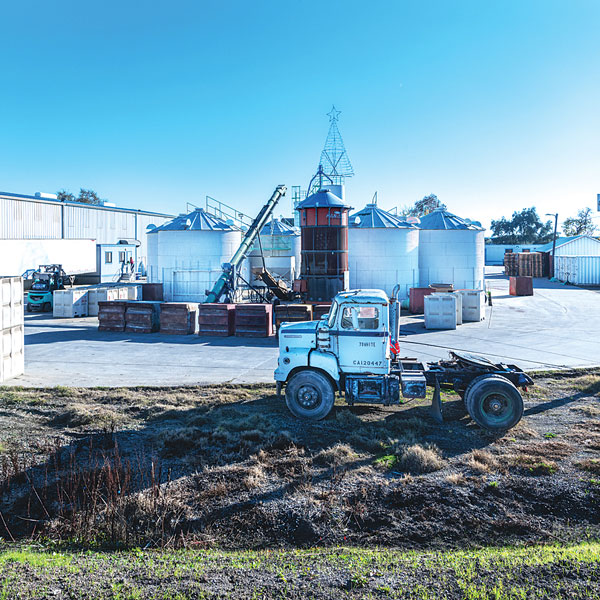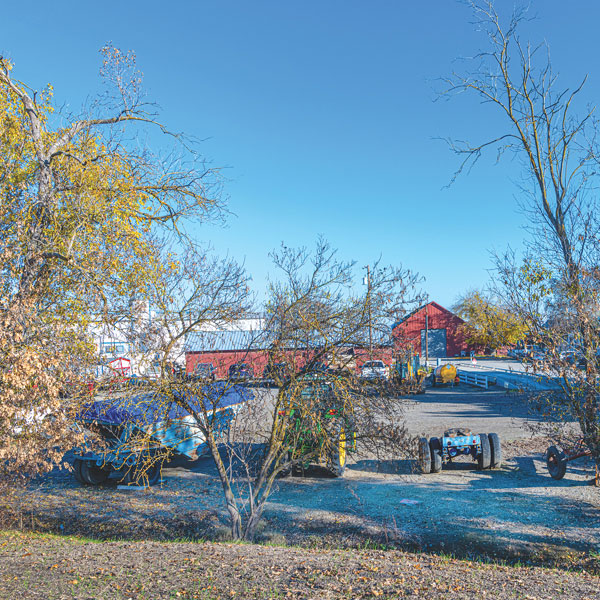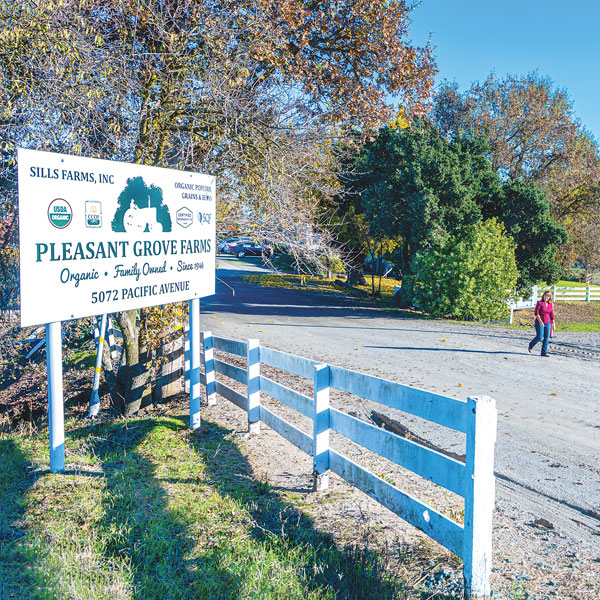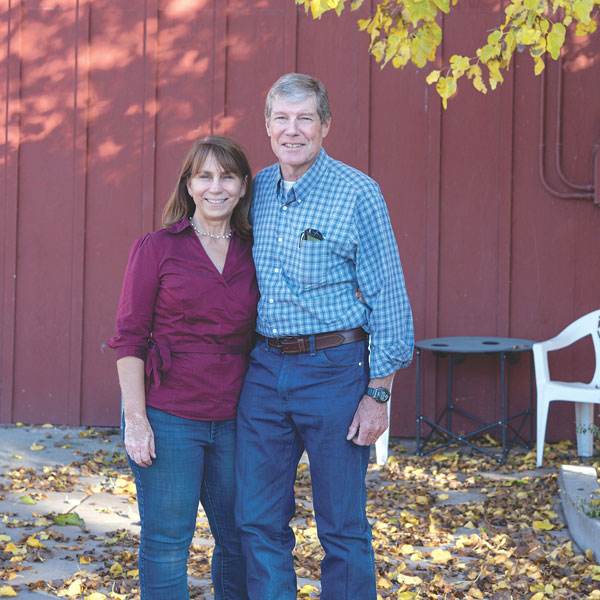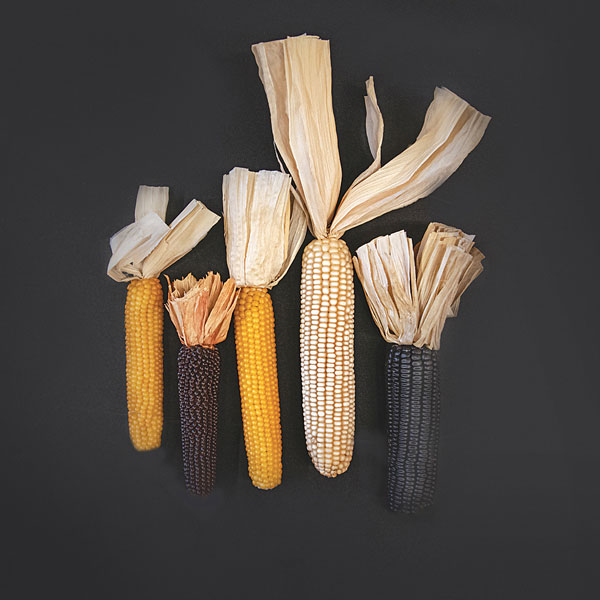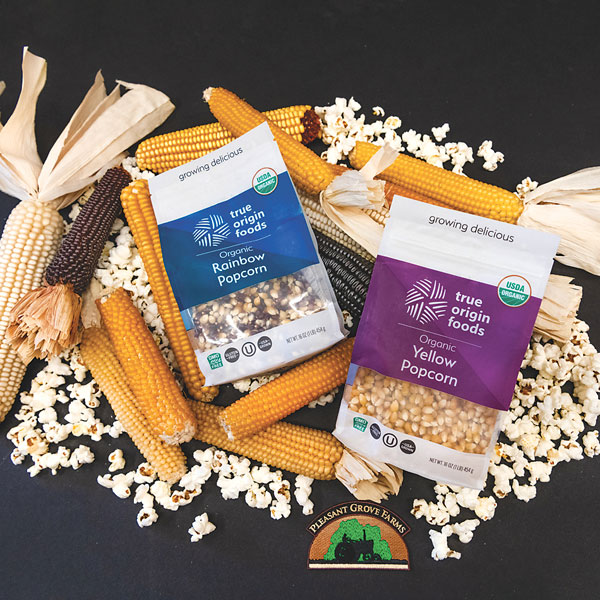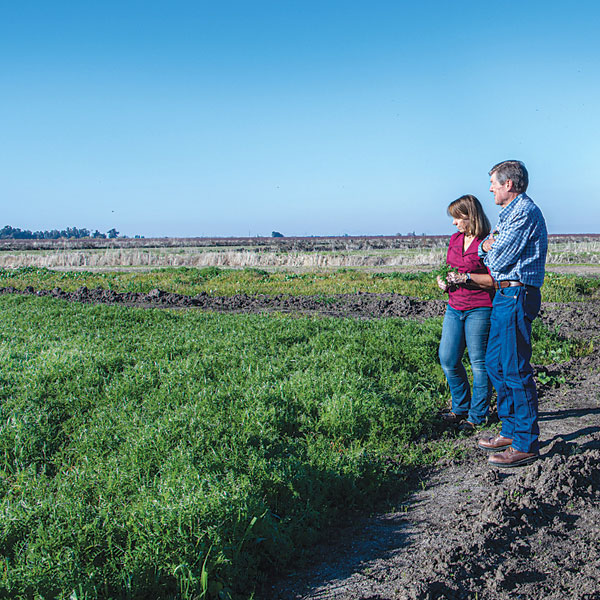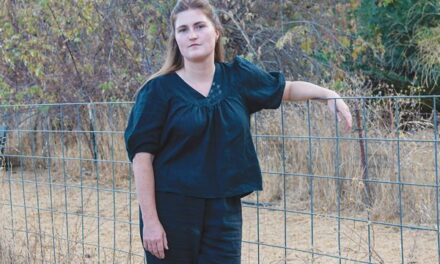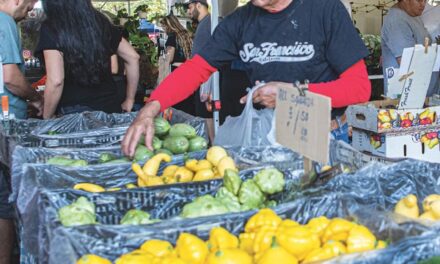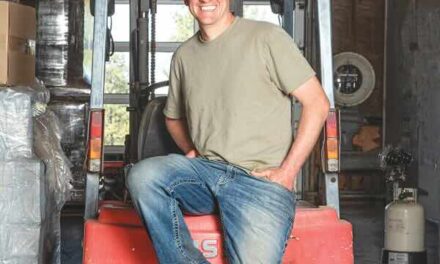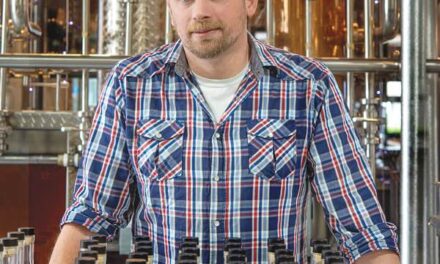Animal Farm
Pleasant Grove makes room for crops and critters
By Gabrielle Myers
January 2025
In golden light surrounded by fields of plump rice and recently harvested corn, beans and wheat, wildlife pecks on dinner.
This is Pleasant Grove Farms, 3,000 acres in the wetlands north of Sacramento. Owners Ed and Wynette Sills drive me around the parcels that comprise the farm.
The test of a healthy farm is the presence of wildlife. While this might seem counterintuitive, farmers who practice organic and regenerative agriculture try to create spaces where crops and other living beings thrive in harmony.
At Pleasant Grove Farms, the Sills love the land and the animals that share it—an obvious love as I see a deer, blue herons, geese, ducks, egrets and cormorants foraging in the dimming light.
Ed’s father Tom Sills founded Pleasant Grove Farms in 1946. Ed took over after graduation from UC Berkeley with a degree in forestry. His studies sparked an interest in sustainable ecosystems. In 1985, Pleasant Grove became an early bearer of the certified organic label.
Wynette Sills went to UC Davis and studied pest management. She met Ed when she worked as a master farm adviser. He asked her out to dinner and wouldn’t stop talking about his organic farm. That was 35 years ago. The couple runs Pleasant Grove Farms together and raised three children there.
Love of the land pushed them to become a certified Regenerative Organic Farm. The regenerative label means the Sills prioritize soil health crop rotations that vary the food grown on specific plots of land.
Pleasant Grove rotates heavy and poorly drained soils in two-year cycles. Lighter and more porous soils rotate in three- or four-year cycles.
In the winter, fields are sown in vetch, a nitrogen fixing legume popular for its ability to repair and replenish soil. Stalks and unharvested plant parts stay in fields after harvest. Turning organic material back into the soil replenishes it.
The couple use water to control weeds by flooding or drying fields. GPS-guided tractors pull weeds and push them back into the dirt. Thus, Pleasant Grove avoids herbicides, fumigants and pesticides.
Regenerative farming addresses the health of wildlife. Wynette says, “We will do anything we can do enhance the habitat.”
She recently planted milkweeds to attract monarch butterflies in partnership with the Monarch Preservation Organization. With several butterflies and chrysalises spotted on the farm, the milkweed project helps this threatened butterfly make a comeback.
Milkweed and other pollinator-friendly plants line the banks of what Wynette and Ed call “Willow Pond,” a place created by field runoff. Beavers and catfish live in the pond. Excess water goes into Auburn Ravine, a wild salmon habitat.
The couple partner with local organizations to promote pollinator-friendly plants. They flood fields in early fall to attract shore birds and work to identify and collect mallard duck eggs. Once hatched, the ducklings return to the fields.
Regenerative farming asks farmers to consider themselves and their workers as part of the system they invest in. With this approach, farm workers are treated with respect, paid sustainable wages and not exposed to harmful chemicals.
Pleasant Grove Farms sells popcorn, corn, rice, wheat, triticale, oats, and kidney, black, mung and urad beans wholesale to Lundberg Family Farms, True Origins Foods, Amy’s Kitchen, Comet Corn and Giusto’s Fine Foods, among other food producers.
For information, visit pleasantgrovefarms.com.
Gabrielle Myers can be reached at gabriellemyers11@gmail.com. Her latest book of poetry, “Break Self: Feed,” is available for $20.99 from fishinglinepress.com. Follow us on Facebook and Instagram: @insidesacramento.



